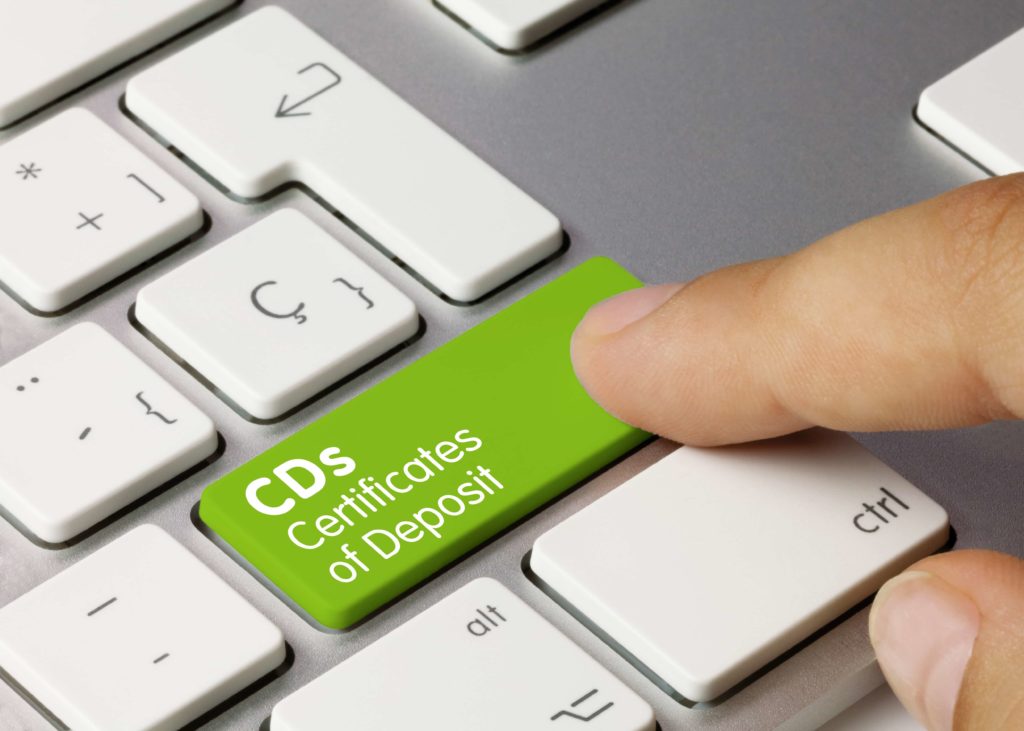You may be familiar with the term CD, or “certificate of deposit,” but you probably haven’t heard the term “share certificate.” CDs and share certificates are very similar products. They both offer short-term solutions to make the most of your money and are considered safe investments for your cash. The main difference is the financial institutions that offer them – banks offer CDs that pay interest, while credit unions offer share certificates that pay dividends.

CDs vs. Share Certificates: What’s the Difference?
A CD is a savings account with more withdrawal restrictions but higher interest rates. If you have savings that you won’t need for a little while, a CD may be an option. You can still access the money in your CD if you really need it, but you’ll pay a penalty if you withdraw money before your term ends.
A share certificate is an easy and low-risk way to multiply your savings over a fixed period called a term. During the term of a certificate, you cannot touch your money, but most share certificates do allow for early closure with a penalty if you need your money right away. Term lengths vary and usually start at a minimum of 12 months, but the longer they are, the higher the yield or earnings generated. Share certificates typically offer higher yields than regular savings accounts, making them a great option if you want to grow your money.
How are Share Certificates a Safe Investment?
Share certificates have a minimum balance as an initial deposit, but there is rarely a maximum balance. That means that most of the time, you can put in as much money as you like. After the term of your certificate ends, you can either roll the certificate over or take the money out and place it back into a regular checking or savings account. Remember – the more you put into the initial deposit, the more you earn.
We know that the idea of investing can be off-putting due to the current economic climate, but the U.S. Securities and Exchange Commission considers share certificates one of the safest, recession-proof investments to make. Unlike stocks or other volatile investments, share certificate rates are fixed throughout the term, so you don’t risk losing what you invest, and the dividends earned on a certificate are yours to keep. Plus, each individual share certificate held by a member is federally insured up to $250,000 by the National Credit Union Administration (NCUA).
What are the Investment Advantages and Disadvantages?
While there are a few disadvantages to investing in a share certificate, like facing early-withdrawal penalties and tying your money up for a specified period of time, there are many benefits. Share certificates have higher rates, guaranteed returns, multiple term options and low deposit requirements. Not to mention, there are no surprises – with share certificates, you choose the deposit amount, period and interest rate.
The benefits of investing in share certificates are why many consider them one of the most attractive investment products credit unions offer to their members. The combination of higher rates and guaranteed returns makes it an ideal option for anyone looking to grow their money.
Benefits:
- Higher rates
- Guaranteed returns
- Flexible term options
- Low deposit requirements
Disadvantages:
- Early withdrawal penalties
- Time
Have you tried our Share Certificates Rate Calculator?
If you’re looking for a safe, easy and low-risk investment option that is relatively recession-proof – share certificates may be the ideal solution for you. Investing in a share certificate will bring you peace of mind knowing your money is somewhere safe and earning dividends. Check out our Share Certificates Rate Calculator here.
If you live in Virginia and are looking for a great investment option, schedule an appointment to talk to a ValleyStar expert today.

